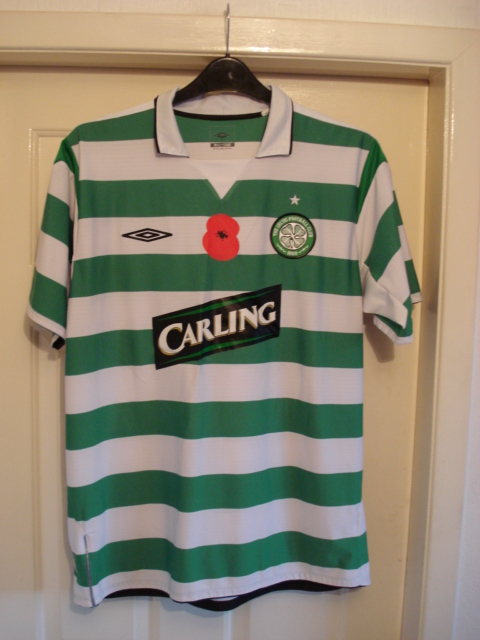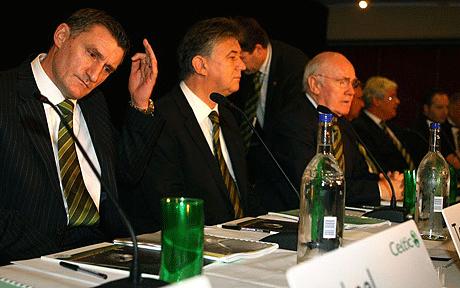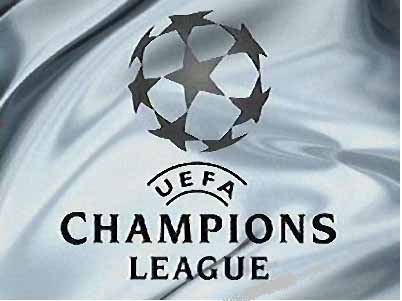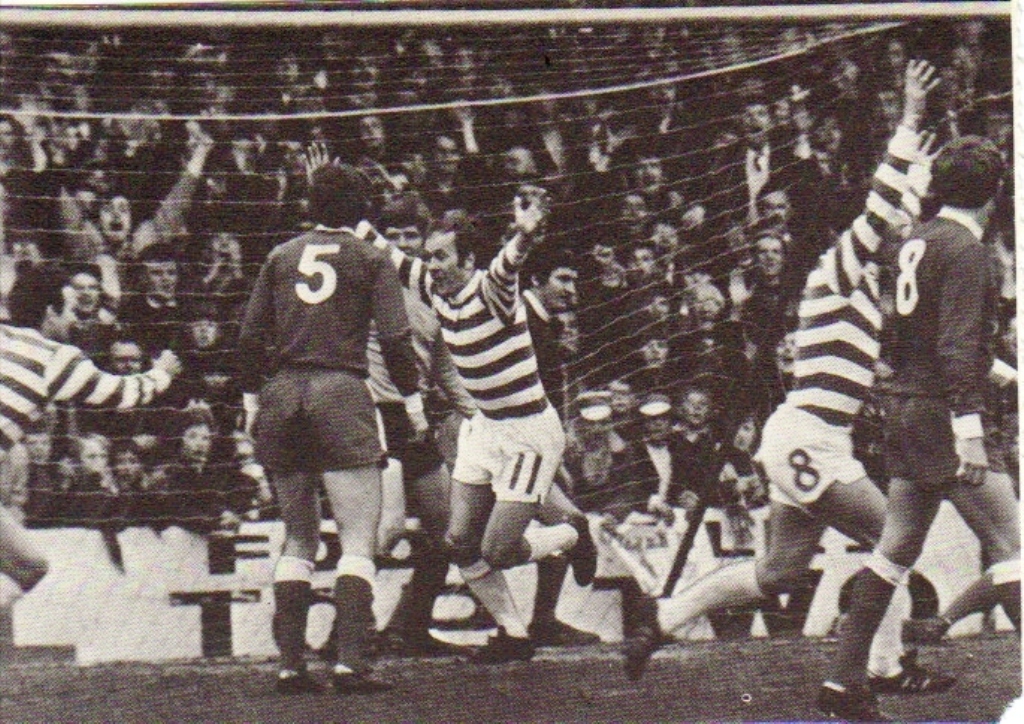Hey presto, a multi-agency campaign of newly created “support the troops” initiatives emerged. Official government sponsored events include countrywide homecoming parades, a new annual memorial service for soldiers killed after WWII and a new annual “Armed Forces Day”. These have been supported by the now traditional Royal British Legion-inspired Wootton Basset homage to the returning dead British military, royal family members patronising a number of military parades, an extended BBC prime-time interview of Prince Charles (13th June 2008) that was framed around the ‘tough and testing duties’ of serving UK soldiers, and the Queen’s 2009 Christmas message that focused on supporting the military. Popular cultural events that help inculcate the “support the troops” message include the X Factor’s “song for heroes”, serving soldier, Katrina Hodge (nicknamed “Combat Barbie”) replacing the dethroned Miss England in the Miss World contest, active soldiers, “The Trio” releasing their Christmas 2009 album “Coming Home”, Prime Minister (Gordon Brown) and serving military personnel taking centre stage at the grand finale of ITV’s Britain’s Best awards programme, the emergence of an Oscar-like Military Award show labelled “the Millies”, Sky News initiating a “For Queen and Country” week, football clubs implanting Earl Haig poppies on shirts and the football League choosing Help for Heroes as its 2009-10 charity.
Manufacturing consent succeeds best by embedding your ideological signifiers into society’s sacred rituals, and the political elites understand (and have always understood) this. It is no coincidence, therefore, to discover that most of the ‘nation’s’ sacred rituals have been “helping heroes” since General Dannatt’s call to arms. And just like its high streets, its annual commemoration days, its most popular television shows, its national news programmes, its music industry, its beauty contestants, and its royal family, the ‘nation’s’ sport is but one of the fertile sites for such surreptitious inculcation.
The nation’s education is incorporated too. In 2008 the MoD began ‘advising’ teachers on what to include in history lessons resulting in the NUT accusing the MoD of behaving “unethically”[1]. This alleged unethical behaviour included strategically targeting disadvantaged schools to give them army recruitment materials, a tactic that both the US and Canada have been accused of employing. Since the invasions of Afghanistan and Iraq, the US and Canadian governments have established their own military-PR departments unashamedly designed to ‘re-connect’ citizens to the national military. The US’s is called Operation Tribute to Freedom, whilst Canada’s is Operation Connection. Both PR strategies include connecting sport and other cultural practices to the military in order to normalise and glorify militarism and to entice fresh young recruits to the cause.
Indeed, the similarities between the US’s and Canada’s PR offensive and the growing support the troops initiatives in the UK are remarkable. The UK’s PR offensive has helped with the unsubtle shifting of the meaning of Remembrance. The red poppy, Remembrance Day and their ever-increasing associated events wrap the violent acts of militaristic conflict in cosy patriotism and national duty promulgating the rhetoric of willing ‘heroes’ “fighting for justice and freedom”. Moreover, the rep poppy has transformed from a symbol of never forgetting the victims of two World Wars to symbolising support for our heroes in Iraq and Afghanistan. The power of the PR is so strong that to stray from such engulfing orthodoxy risks being symbolically annihilated as a disrespectful lout, traitor or extremist. Yet war is not heroic, it is perhaps the most tragic human failure.
The hawkish mantra that “we must remember those who fought and still fight for freedom” merely evidences the growing latent political potency of the Earl Haig poppy. The “freedom” soundbite is abused in defending what Harry Patch described as the legalised mass murder of young men in WWI, not to mention more recent atrocities in Afghanistan and Iraq[2], which, for many, have little to do with freedom. What if the leaders had to do what Harry suggested and “settle their differences themselves, instead of organising nothing better than legalised mass murder”? “Support our troops,” we’re told. Yet consider past consequences of such dogmatism. Consider those imprisoned or sent to labour camps for refusing to kill and die in WWI. Traumatised battle victims were branded cowards and murdered by their ‘own’ people for insubordination. Rather than kill one another, masses of British and German soldiers played football together. Only after threats of execution by their ‘own’ military leaders were they forced to resume the killing and for what exactly?
But what about Hitler and the Nazis? Without the Empire-building First World War, the Nazi party wouldn’t have existed. Were the German ‘people’ right to unconditionally “support the troops”? What if Germany’s soldiers stood up to the political ideology informing its militaristic decisions? Seducing an economically impoverished underclass with a cocktail of jingoistic patriotism, aggressive militarism and national pride intoxicates many misguided patriots into believing in the righteousness of their ‘nation’. The war cemeteries of the 20th Century are populated with victims of such seduction and so too will its 21st Century varieties be unless we do more than dogmatically remember with pride and support the troops.
To fight wars, governments need obedient and unquestioning soldiers willing to kill and die on their behalf. This is the central feature of army training. Governments (and the soldiers) also require populations to be unquestioning and obedient, and part of our training is the annual homage to militarism and human sacrifice at Remembrance Sunday. It is time to question the conscription. Rather than remember with pride, shouldn’t we act to prevent? Then it may be possible to create the peaceful future we all should desire. Rather than righteously remember, let’s question the morality of placing our hopes of peace on a charitable symbol – which has increasingly assumed wider political signification. Don’t take my word for it; Harry Patch himself was unequivocal when he said, “11 November is just show business. Take the Armistice Day celebrations that night on television; it is nothing but a show of military force, that’s all”.
All of this would be more excusable if the annual poppy-fest could be proved to be preventing war and actually helping war victims. Unfortunately, it does neither of these well. How many millions have died and suffered since the “War to End all Wars” and the invented tradition of poppy wearing? Relying on charitable sales of red poppies burdens you and I with a moral responsibility that belongs to the government who sent their citizens to death and maiming in the first place.
Those who do not support the political or ideological justifications for conflict have a duty to resist and to prevent their voice being hijacked into the “nation’s support for heroes”! Resistance always needs to be understood in both the way it opposes dominant ideology and is contained by it! Refusal, therefore, to ‘support the troops’ is quite separate from feeling deep sorrow for those killed. The problem is that the powerful elites are determined to weave both issues inextricably together in attempting to manufacture consent and demonise dissent. In the aftermath of Harry Patch’s death, the subsequent scandalous hijacking of his funeral by the militaristic elites demonstrated the desperate determination to re-brand old Harry as a willing hero in war rather than the unlikely survivor of legalised murder. Those salivating militaristic elites conveniently camouflaged his lifelong anti-militaristic feelings and his unambiguous message that “war isn’t worth one life!”





